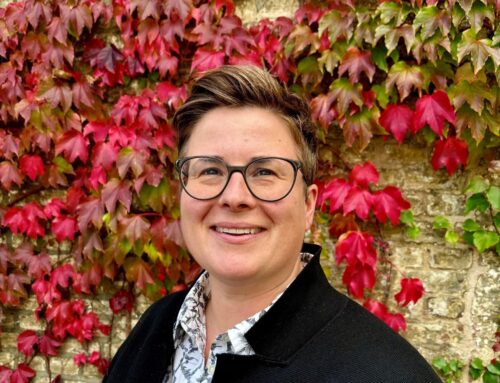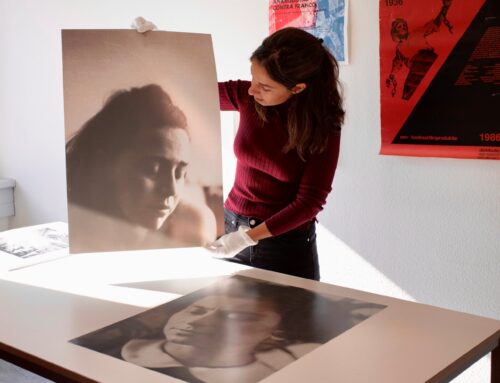 The Netherlands Research School of Gender Studies organises the DOING GENDER Lecture Series in cooperation with her partners. These lectures stress the importance of doing gender work combined with an active involvement in the practice of gender theory and research. The concept of DOING GENDER supports a hands-on approach to gender issues in the sense of social and political engagement with the new forms of gender inequalities that are taking shape in the world today. The lecture series wants to give space to the new generations of gender theorists and practitioners and to perspectives that innovate the field and do gender in new ways. Key is the notion of doing gender: what is the state of the art definition of gender? How do contemporary scholars and activists utilise this definition?
The Netherlands Research School of Gender Studies organises the DOING GENDER Lecture Series in cooperation with her partners. These lectures stress the importance of doing gender work combined with an active involvement in the practice of gender theory and research. The concept of DOING GENDER supports a hands-on approach to gender issues in the sense of social and political engagement with the new forms of gender inequalities that are taking shape in the world today. The lecture series wants to give space to the new generations of gender theorists and practitioners and to perspectives that innovate the field and do gender in new ways. Key is the notion of doing gender: what is the state of the art definition of gender? How do contemporary scholars and activists utilise this definition?
The Doing Gender Lecture series for 2024-205 will be framed around the theme of Feminist Solidarity in Times of War.
On Thursday, March 6, Dr. Veronica Zablotsky (Freie Universität Berlin) will give the Doing Gender Lecture entitled Many Worlds Are Possible: Ecofeminist Contestations in the Pluriversal South Caucasus.
Lecture: Many Worlds Are Possible: Ecofeminist Contestations in the Pluriversal South Caucasus
In Northern news media, West Asian republics such as Armenia and Azerbaijan – waring over the former autonomous region of Nagorno Karabakh since the dissolution of the Soviet Union – are mostly figured, if at all, as obscure hinterlands engaged in inscrutable and seemingly interminable territorial conflicts. Even in transnational feminist debates about postcolonial and decolonial approaches to postsocialism, geopolitical hierarchies tend to prevail as the South Caucasus region is rarely centered. This talk offers a closer look at both, the epistemic fault-lines that render these borderlands opaque – a set of procedures termed “whiteboxing” by the artist-intellectuals Rene Gabri and Ayreen Anastas – and reflections on concrete solidarity practices that cut across logics of separation amidst the destruction of interconnected human and more-than-human life-worlds. By refusing sovereign and corporate regimes of death-making through an insistence on collective care and the centering of all that is living, ecofeminist land and border defenders mobilize past and present non-state models of local autonomy and pluralist co-habitation to envision a livable future through the abolition of Soviet-era nation-state borders. Based on close readings of recent feminist anti-war and solidarity statements against extractivism, I theorize an emergent non-aligned politics of decolonization that insists on repair through relationality in and beyond the pluriversal South Caucasus.
Biography:
Veronika Zablotsky is a political theorist and specializes in feminist and postcolonial theories; critical race theory; migration and border studies; critical refugee and Armenian diaspora studies; postsocialism in the SWANA region; social movement studies and activist scholarship; as well as qualitative, participatory, and abolitionist research methods. She teaches in the Department of Philosophy at Freie Universität Berlin and held visiting professorships in politics and gender studies at Justus-Liebig-Universität Gießen and Universität Koblenz. As a postdoctoral researcher with Transforming Solidarities, an interdisciplinary research group that explored solidarity practices in labor, housing, and health in Berlin, she developed the award-winning experimental installation Kiosk of Solidarity. Previously she served as Andrew W. Mellow Postdoctoral Fellow in the Sawyer Seminar Sanctuary Spaces: Reworlding Humanism at the University of California, Los Angeles. Among her publications are Beyond Sanctuary: The Humanism of a World in Motion (forthcoming with Duke University Press, co-edited with Ananya Roy), “Affecting Appeals: Armenian Refugee Narratives in the Archives of Early Humanitarian Discourse” (2023) in The Routledge Handbook of Refugee Narratives, and “Engaging Contradictions: Feminist Solidarity in Times of War,” in Gender Studies 26, 2022. Her research is often collaborative and concerned with the practical ethics of solidarity, most recently in accompaniment of transnational social justice movements with the scholar activist collective Abolition Beyond Borders. She continues to organize with the Critical Armenian Studies Collective which she co-founded at the University of Pennsylvania in 2019.
Doing Gender Lecture by Dr. Veronika Zablotsky
Tuesday, April 1, 2025
Lecture: Many Worlds Are Possible: Ecofeminist Contestations in the Pluriversal South Caucasus
Time: 17:15-18:45hrs.
Location: Janskerkhof 2-3 – Room 021
Chair: Dr. Ana Miranda Mora
Registration: nog@uu.nl
Reading: Nelli Sargsyan (2022/2024) “The Exigencies of the Necropolitical: Rehearsing Livability through Feminist Performative Storytelling,” Women & Performance: a journal of feminist theory 32:3, 289-305, https://doi.org/10.1080/0740770X.2022.2360786.






